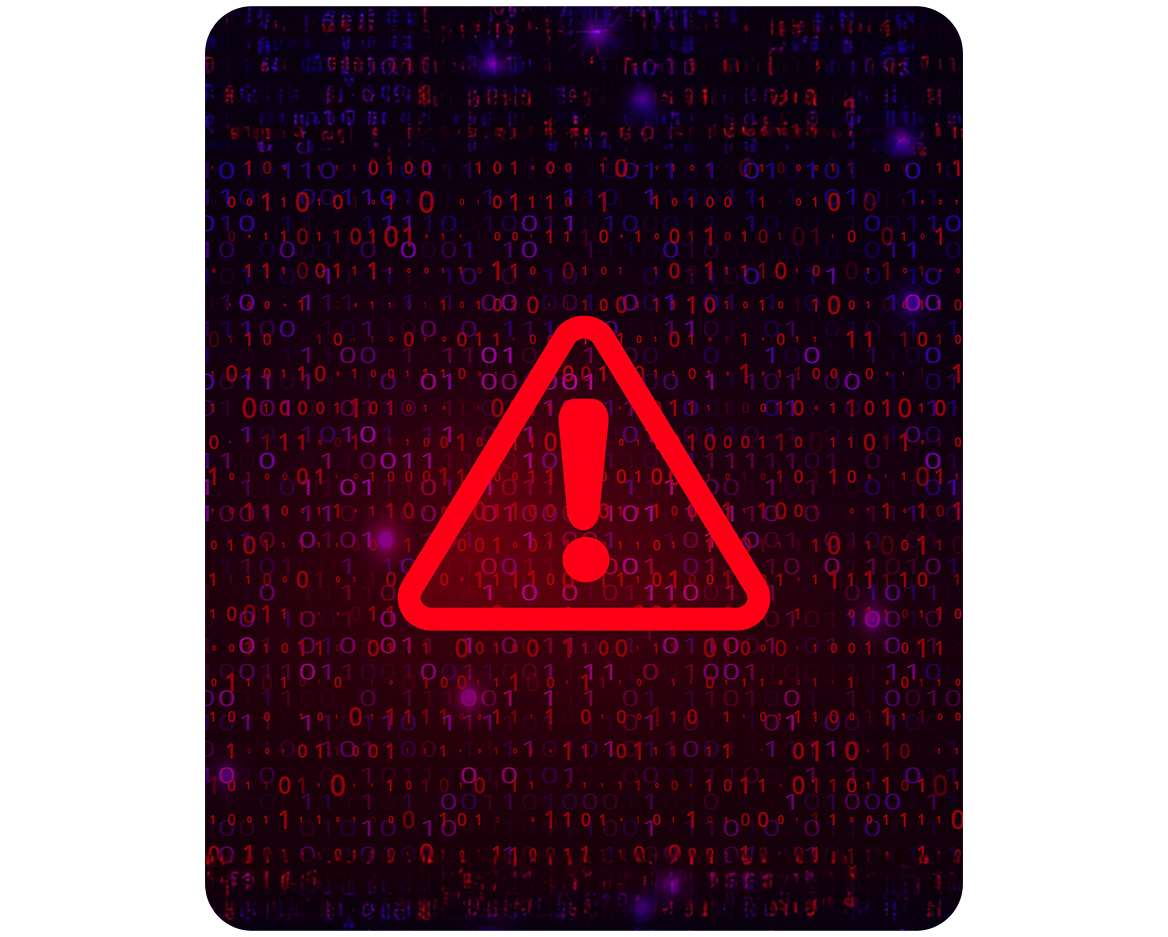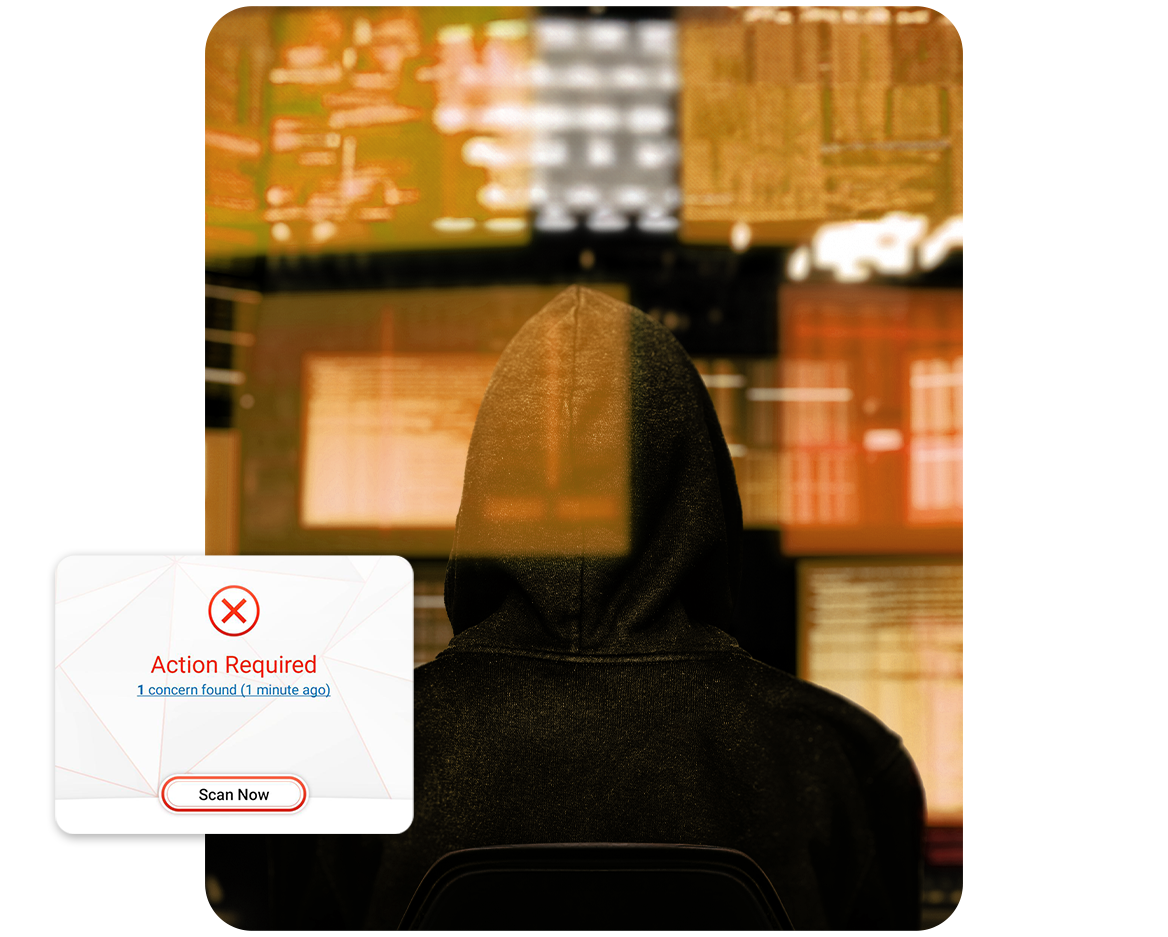- Top Features
- Secures PC, Mac, and Mobile devices
- Antivirus, malware, ransomware, & spyware protection
- Keeps children safe online
- Protects webmail from scams and phishing attacks
- Secures online banking and shopping
- Secures privacy on social media
- Pauses notifications during gaming
- NEW! Protects AI applications from tampering and abuse

What is Phishing?
Phishing is a type of online scam where fraudsters create fake emails, messages, or websites that appear legitimate to trick people into revealing sensitive information like passwords, credit card numbers, or personal details. These deceptive communications often mimic reputable organizations such as banks, social media platforms, or government agencies. Phishing attempts typically urge recipients to click on links, download attachments, or provide confidential information under false pretenses.
Types of Phishing Attacks
Phishing attacks manifest in various forms, each aiming to deceive individuals and organizations through deceptive methods. Common types include:
- Email Phishing: Fraudulent emails impersonate legitimate entities to trick recipients into divulging sensitive information or clicking on malicious links.
- Spear Phishing: Targeted emails customized for specific individuals or organizations, often utilizing personal details to appear genuine.
- Vishing: Phishing conducted through voice calls, where attackers pose as trusted entities to extract sensitive information over the phone.
- Smishing: Phishing via SMS or text messages, deceiving recipients into clicking on harmful links or providing personal information.
- Pharming: Redirecting users to fraudulent websites by manipulating DNS settings or exploiting web browser vulnerabilities.
- Clone Phishing: Manipulating legitimate emails by creating exact copies with modified links or attachments to steal information.

Phishing Email
A phishing email is a deceptive message sent by cybercriminals pretending to be trustworthy sources like banks, government agencies, or well-known companies. Their goal is to deceive people into sharing personal info, clicking on dangerous links, or downloading harmful files. These emails often use urgency, fear, or curiosity to make you act quickly. They can look very convincing, with logos and wording that seem real.

Spear Phishing
Spear phishing is a more personalized type of cyber attack. In a spear phishing attack, the cybercriminals do their homework by gathering information about specific individuals or organizations. They then use this information to create emails or messages that seem genuine and trustworthy. These messages often include familiar names, email addresses, or other details to trick people into sharing sensitive information, clicking on harmful links, or downloading malicious files. The goal is to exploit trust to bypass normal security defenses.
Phishing Scams: How to Protect Yourself?
Preventing phishing attacks involves several key strategies:
- Stay Informed: Learn to recognize common signs of phishing, like suspicious links or requests for personal information.
- Verify Emails: Double-check the sender's email address and contact them directly if you're unsure about a request.
- Be Cautious with Links: Avoid clicking on links in emails from unknown sources or that seem unusual.
- Use Security Tools: Install reliable antivirus software and email filters to detect and block phishing attempts.
- Enable Two-Factor Authentication: Add an extra layer of security to your accounts with 2FA.
- Keep Software Updated: Regularly update your devices and software to protect against vulnerabilities.
- Report Suspicious Activity: Report phishing emails to your IT team and change passwords if you've interacted with a suspicious email.

Trend Micro Antivirus Subscription Plans
Comprehensive online security and antivirus protection
RRP: SG$69.95
SG$49.00
SAVE SG$20.95
- Top Features
- Secures PC, Mac, and Mobile devices
- Antivirus, malware, ransomware, & spyware protection
- Keeps children safe online
- Protects webmail from scams and phishing attacks
- Secures online banking and shopping
- Secures privacy on social media
- Pauses notifications during gaming
- NEW! Protects AI applications from tampering and abuse
Upgraded version of Maximum Security complete with VPN and CleanerPro
RRP: SG$99.95
SG$79.00
SAVE SG$20.95
- Top Features
- Secures PC, Mac, and Mobile devices
- Antivirus, malware, ransomware, & spyware protection
- Keeps children safe online
- Protects webmail from scams and phishing attacks
- Secures online banking and shopping
- Secures privacy on social media
- Pauses notifications during gaming
- NEW! Protects AI applications from tampering and abuse Also Includes
- Secure VPN to protect your privacy
- All-in-one disc cleaning manager
- Top Features
- Secures PC, Mac, and Mobile devices
- Antivirus, malware, ransomware, & spyware protection
- Keeps children safe online
- Protects webmail from scams and phishing attacks
- Secures online banking and shopping
- Secures privacy on social media
- Pauses notifications during gaming
- NEW! Protects AI applications from tampering and abuse Also Includes
- Secure VPN to protect your privacy
- All-in-one disc cleaning manager
Trusted security software with secure VPN/WiFi protection & identity theft protection
RRP: SG$149.95
SG$99.95
SAVE SG$50.00
- Top Features
- Secures PC, Mac, and Mobile devices
- Antivirus, malware, ransomware, & spyware protection
- Keeps children safe online
- Protects webmail from scams and phishing attacks
- Secures online banking and shopping
- Secures privacy on social media
- Pauses notifications during gaming
- NEW! Protects AI applications from tampering and abuse Also Includes
- Secure VPN to protect your privacy
- Identity protection to keep your identity safe & manage your passwords
- Anti-track and Ad-blocker to stop third parties from collecting your data
- 24x7 support
- Top Features
- Secures PC, Mac, and Mobile devices
- Antivirus, malware, ransomware, & spyware protection
- Keeps children safe online
- Protects webmail from scams and phishing attacks
- Secures online banking and shopping
- Secures privacy on social media
- Pauses notifications during gaming
- NEW! Protects AI applications from tampering and abuse Also Includes
- Secure VPN to protect your privacy
- Identity protection to keep your identity safe & manage your passwords
- Anti-track and Ad-blocker to stop third parties from collecting your data
- 24x7 support
-
Select Product
Selecting the right product for your online protection. Tailored to meet your specific needs.
-
Choose Plan
Choose your plan that reflects how many devices and how long you want to protect.
-
Login/Register
Take the first step towards a more secured digital life and peace of mind by registering today.
-
Make Payment
We offer a variety of secure payment methods to make your payment process convenient and hassle-free.
Trend Micro Security Products Customer Reviews
It is a good system and appears to cover all aspectsI have been with Trend Micro for quite a number of years and my computer and mobile devices have been well-protected and no invasions by hackers [nor] other infiltrators have [since] occurred. Being an aged person without an IT background, I have called technical support service a number of times and received all the time and assistance needed. Your technicians are always helpful and understanding.
Bill Goodie - 3 months ago
Good quality productI have been a Trend Micro customer since 2013. In that time, I have never been attacked by any malicious software [nor] infected with harm-causing software. I have been warned a number of times that particular websites were potentially dangerous and should be avoided. I have never had any cause to question what the Trend Micro software was doing, as it went about its business of protecting me. The four other systems that are protected by my licensed version of the software have never had their computers compromised.
woodsie13 - 5 months ago
Fool-proof protectionI have been with Trend Micro for years now and have never had a problem. From the first installation which was easy, to annual renewals—the processes have been simple. I have three devices protected and it gives me peace of mind. I would highly recommend this product.
wall - 5 months ago
Great all round protectionHave been purchasing this for many years, never had an issue with [it]. So easy to purchase, download, install, run, and protect my IT equipment and software, truly cannot fault at all.
Goldi - 5 months ago
Easy and complete protectionI have used your product for over 3 years and have had no issues. [It is] easy to load, and easy to use. I have seen it disrupt various attempts of viral attacks against my machine, it gives me great confidence.
Swampwitch - a month ago
Peace of MindI have been using Trend Micro since the 1990's when my PC had 500meg of hard drive and 32 meg of ram. In recent years, I have purchased the multiple 2 year product to ensure all my devices are protected, as well those of my family. I have never used any other product as extremely satisfied with Trend Micro protection.
Greeny - a month ago
Why Buy from the Official Trend Micro Store?
 Latest Products & Offers
Latest Products & Offers
Get the latest deals across our entire range of security products for all your internet-connected devices.
 Simple & Easy
Simple & Easy
Buying online is only a few clicks away. If you require help, our online support is available 24x7 via email or chat.
 Total Peace of Mind
Total Peace of Mind
Stay continuously protected with the latest version and automatic renewal on checkout — removing the hassle of renewing manually every year.
Trend Micro has the highest quality solutions and the best security protection, as recognised through awards by independent tester AV-Test since 2003.
Dedicated to assuring 100% customer satisfaction. Our security experts are ready to assist you 24x7.
Thirty years of experience and innovation guarantees only the best internet security and antivirus protection.
Enjoy a 30-day money-back satisfaction guarantee when you purchase through the Trend Micro online shop.
Get Advanced Protection with
Trend Micro Security Suite Pro Plus
If you’re looking for advanced antivirus protection with anti-scam software and identity theft protection, consider Security Suite Pro Plus. It provides full device and identity safeguarding for PC, Mac, smartphones and tablets.
Highlights of Security Suite Pro Plus include:
- Protect PCs, Macs, mobile phones and tablets
- Antivirus, malware, ransomware, & spyware protection
- Guard against identity theft with dark web monitoring
- Anti-track and Ad-blocker to stop third parties from collecting your data
- Protect and manage passwords
- Keep children safe online
- Secure VPN to protect your privacy
- Anti-scam to detect AI scams, warn users of deepfake scams during video call, filter spam texts and block unsafe websites
- 24x7 unlimited technical support and emergency assistance
Subscribe now

Maximum Security
Mobile Security
ID Protection
VPN
Trend Micro ScamCheck
Frequently Asked Questions
You might be a victim of phishing if you notice the following signs:
- Unexpected Requests: You receive unexpected emails, text messages, or calls asking for personal information, passwords, or payment details.
- Urgency or Fear: Messages create a sense of urgency, fear of consequences (like account closure), or promises of rewards to prompt immediate action.
- Suspicious Links: Emails contain links that seem odd or lead to unfamiliar websites. Hover over links (without clicking) to check their destination.
- Spelling and Grammar Mistakes: Phishing emails often contain spelling or grammatical errors that legitimate organizations typically avoid.
- Unusual Attachments: Be cautious of unexpected attachments, especially from unknown senders, as they could contain malware.
- Mismatched URLs: Check the URL of the website you're directed to—it may look similar to a legitimate site but could have slight variations.
- Requests for Sensitive Information: Be wary of requests for passwords, Social Security numbers, credit card details, or other personal information.
If you suspect you've been phished, avoid interacting further with the message or links, report it to your IT or security team, and monitor your accounts for any unauthorized activity.
Trend Micro security software offers robust protection against phishing attacks through multiple layers of defense. It employs advanced email scanning capabilities to detect and block phishing emails containing suspicious links or attachments that may lead to malicious websites or malware downloads. Trend Micro's anti-phishing technology uses advanced analysis to spot and stop phishing attempts by checking email content, URLs, and how websites behave.URL filtering further enhances security by ng sites, automatically blocking access to flagged sites and alerting users to potential risks. With these proactive measures and continuous updates, Trend Micro security software helps users maintain a secure online environment and mitigate the risks posed by phishing attacks effectively.
You might be a victim of phishing if you notice the following signs:
- Visit the SPF (Singapore Police Force) Website and use their online form.
- Call the SPF hotline at 1800-255-0000.
- Use IMDA’s (Infocomm Media Development Authority) online reporting form on their website.
- Forward phishing emails to Cyber Security Agency of Singapore (CSA) report@csa.gov.sg.
- Call the anti-scam helpline at 1800-722-6688.
If you suspect you've been phished, avoid interacting further with the message or links, report it to your IT or security team, and monitor your accounts for any unauthorized activity.
If you are a victim of bank phishing scams in Singapore, here are the steps you should take:
- Contact Your Bank Immediately: Inform your bank about the phishing scam as soon as possible. Use the official customer service number from the bank's website or statements to ensure you're contacting the legitimate bank.
- Freeze Your Accounts: If you suspect unauthorized transactions or access to your accounts, request your bank to freeze your accounts temporarily to prevent further losses.
- Report to Police: File a police report with the Singapore Police Force (SPF). You can do this online through their website or by visiting a police station in person.
- Report to Authorities: Report the phishing incident to the Cyber Security Agency of Singapore (CSA). You can forward phishing emails to report@csa.gov.sg.
- Monitor Your Accounts: Regularly monitor your bank accounts and credit statements for any suspicious transactions. Report any unauthorized activities to your bank immediately.
- Educate Yourself: Learn from the experience and educate yourself on how to identify phishing scams in the future. Stay vigilant and cautious with your personal and financial information online.
Taking these steps promptly can help mitigate the impact of bank phishing scams and protect your financial assets in Singapore.
Who is Trend Micro?
Trend Micro is an industry leader in antivirus protection and internet security, with more than 30 years of security software experience in keeping millions of users safe. Trend Micro Security secures your connected world providing protection against malware, ransomware, spyware, and cyber threats that could compromise your online experience. It also helps protect you from identity theft, viruses, online scams, and other emerging threats.
Learn MoreNeed Support?
Need help installing your software? You can view our online tutorials to help get you up and running; or if you'd prefer to contact us, you can chat, email, or call one of our technical support engineers.
Get Support


